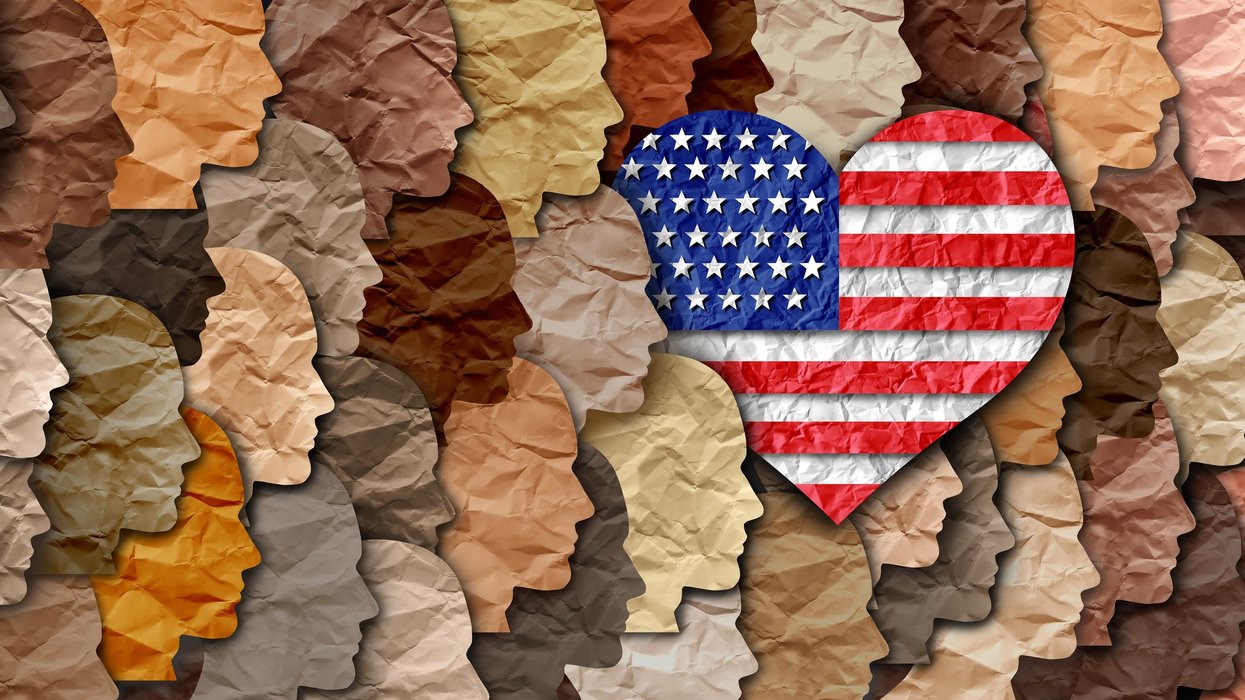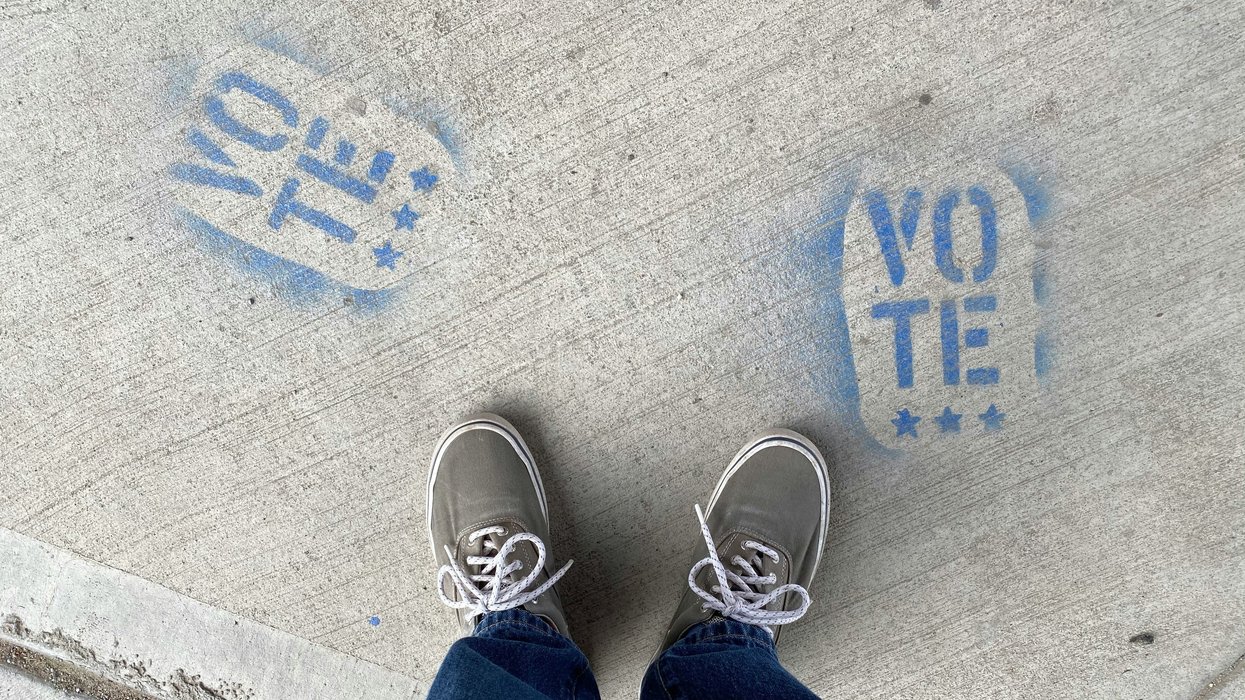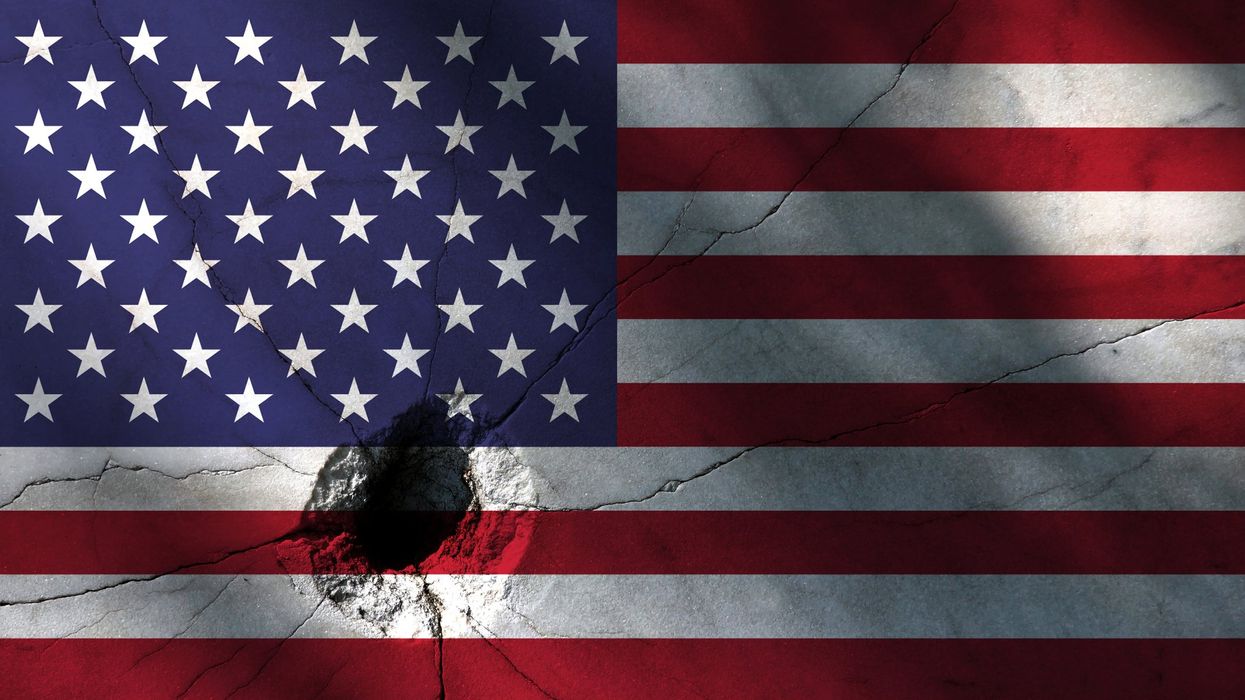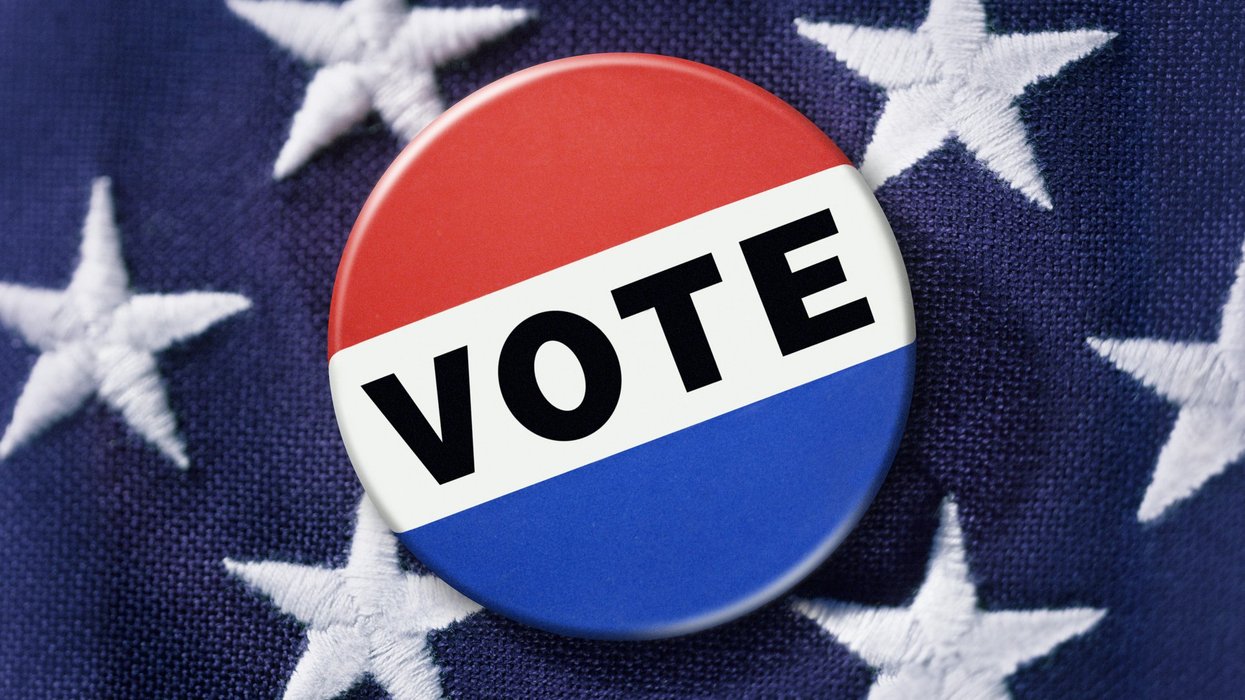Hiett graduated in December with degrees in international studies and journalism from the University of Oklahoma. She is a volunteer at American Promise, which advocates for amending the Constitution to regulate the raising and spending of electoral campaign funds.
Younger generations are often berated for not turning out to vote at meaningful rates, and that criticism is not totally unwarranted. In the 2016 presidential race, people between 18 and 29 made up just 13 percent of the electorate. But rather than chastising Millennials and Gen Z for not voting, we need to focus on why they aren't showing up at the polls.
Ten years after one of the worst Supreme Court decisions ever, the real answer should have become abundantly clear.
In the 2018 elections alone, special-interest spending exceeded $5.7 billion. The fossil fuel industry has invested more than $2 billion in the past two decades slandering sustainable climate legislation, and the National Rifle Association has spent more than $203 million on political activities since 1998. In comparison, only half of 1 percent of Americans donate more than $10,000 in any election.
The idea that young people don't vote because they are apathetic is a fallacy. Throughout history, many of the most influential activist movements around the world have been led by young people, and this momentum has accelerated in recent years.
Sign up for The Fulcrum newsletter
In December, 16-year-old climate activist Greta Thunberg made history when she became the youngest individual ever to be named Time magazine's Person of the Year. In 2018, students from Stoneman Douglas High School in Parkland, Fla., led the movement advocating for gun control by lobbying their state lawmakers, meeting with President Trump and persuading billion-dollar companies to cut ties with the NRA.
Young people don't abstain from voting because of a lack of interest, or because they're unaware of the myriad issues plaguing our society. Recent polling of younger voters from the Harvard Kennedy School's Institute of Politics found that when young people don't vote, it's largely because they believe their vote doesn't have the power to bring about meaningful change ― and they're right.
A study from Princeton University found that public opinion has a "near-zero" impact on public policy, meaning the number of Americans for or against any piece of legislation has no impact on the likelihood of Congress making it a law. So if voters aren't the ones influencing our democracy, what is?
The answer is money. Our political system is shaped almost entirely by the people and corporations who have the most of it.
Our democracy exists in a cycle of legalized corruption made possible by the 2010 Supreme Court case Citizens United v FEC. In the 5-4 decision, the court ruled that unlimited political spending, by individuals or by corporations, is protected as free speech under the First Amendment. As a result, the 200 most politically active corporations in America have been free to spend almost $6 billion influencing the government through lobbying and campaign contributions over the past five years. This year's campaign cycle is projected to draw more than $10 billion in spending.
Our representatives are no longer accountable to us — their constituents — but rather to the corporations and wealthy donors who bankroll their campaigns. This is why the opinions of the bottom 90 percent of income earners in America have a "statistically non-significant impact" on legislation.
It's also why younger generations rightfully feel their votes are not going to create meaningful political change. The average millennial makes just $35,592 a year and has a net worth of less than $8,000. So, in a pay-to-play political system, our generation has the least influence of all.
The only way to reclaim our democracy and create a political system that is truly of the people, by the people and for the people is by getting big money out of politics. The most effective way to accomplish this is through the passage of a 28th Amendment to the Constitution.
I'm a member of an organization spearheading this vital cause — American Promise, a grassroots, cross-partisan nonprofit that organizes and empowers Americans from across the nation to advocate for amending the Constitution to repeal Citizens United and allow Congress and the states to impose limits on corporate political spending.
For such an amendment to become part of the Constitution, it needs to be endorsed by two-thirds of Congress and ratified by 38 of the 50 states. So far, 20 states and more than 800 towns and cities — representing 46 percent of the population — have passed state and local resolutions calling on Congress to propose a 28th Amendment and send it to the states for ratification.
This kind of state-by-state grassroots resolution process has proven successful in the past. It's what built pressure on Congress to propose other amendments, including the 17th (popular-vote election of senators), the 19th (women's right to vote) and the 26th (lowering the voting age to 18).
If young voters want to see action on the issues they care about most — stopping climate change, reducing student loan debt, controlling the spread of guns and reforming immigration reform — we must address the root cause of congressional inaction by fighting to radically decrease the influence of big money in our political system. Until we accomplish that, we shouldn't expect Congress to accomplish much of anything we care about.
If we want young Americans to be engaged voters, we have to make their votes count by tackling legalized corruption. A 28th Amendment is our best hope of restoring our democracy, our environment, and our futures.
To support this movement, sign the Cause of Our Time Statement of Principle today.




















